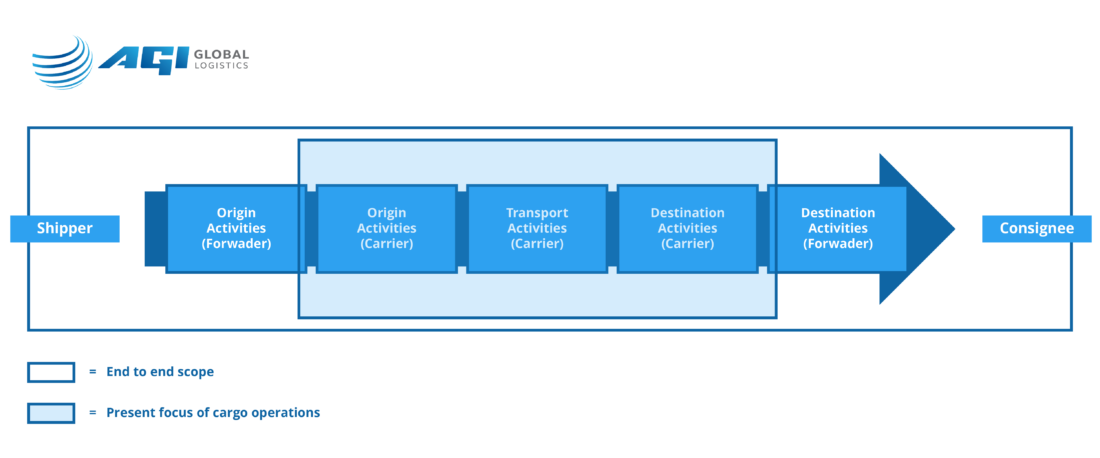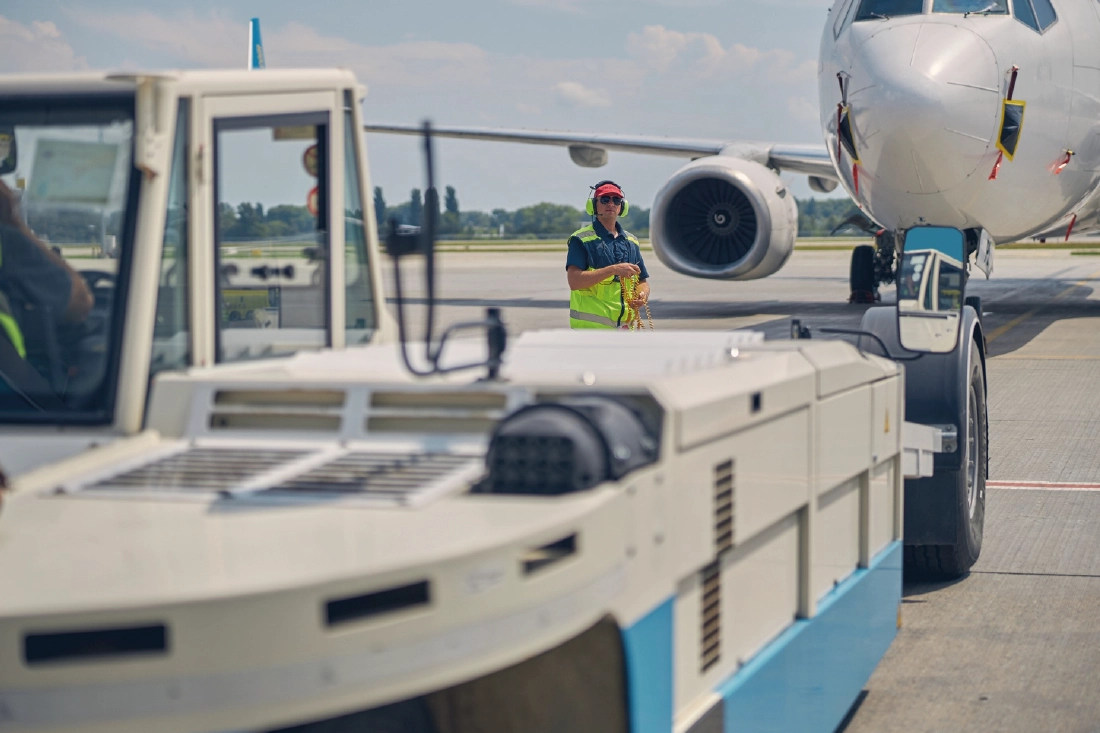In the dynamic world of international trade, the efficient transportation of goods is paramount. When it comes to shipping valuable or time-sensitive cargo, air freight often emerges as the preferred choice, used primarily for urgent and high-value items. Pair that with sophisticated cargo tracking that allows clients to see where their shipment is at any given time, and it’s easy to understand why it’s a top choice!
This comprehensive guide will provide you with valuable information into air charter services, cargo handling, and the significance of air freight. From understanding the fundamentals of air freight to navigating cargo handling procedures and exploring the intricacies of cargo aircraft payloads, we’ve got you covered!
What is Air Freight?
Air freight, also known as air cargo, refers to the transportation of goods by aircraft. It can provide various advantages over other modes of delivery, such as speed, reliability, and global reach. By leveraging the extensive network of airlines and cargo carriers, air freight enables businesses to transport their goods quickly and efficiently to international destinations.
What is an Aircraft Cargo Charter?
An aircraft cargo charter refers to the dedicated use of an aircraft for the transportation of goods and freight. It involves chartering an entire aircraft solely for the purpose of moving cargo, allowing for efficient and customised logistics solutions. They are often used when traditional commercial air freight services are unable to meet specific requirements.
Aircraft cargo charters also tend to offer more flexibility in terms of scheduling, destinations, and cargo handling. One of their key advantages is the ability to transport time-sensitive or high-value goods with improved speed and security. By chartering an aircraft, businesses can bypass the constraints of scheduled commercial flights and have greater control over the transportation of their cargo. This is particularly useful for urgent deliveries, critical supplies, or situations where time is of the essence!
Aircraft charter services are typically arranged through charter air freight brokers or freight forwarders with expertise in air logistics, assisting in the coordinating of all aspects of the charter, including cargo handling, customs clearance, documentation, and flight operations.
Cargo Aircraft Payloads: Different Payloads
Cargo aircraft come in various sizes and configurations, allowing for the transportation of different payloads. The payload capacity of an aircraft determines the maximum weight it can carry and influences the delivery cost. Understanding the different payloads available is essential for selecting the right aircraft for specific cargo transportation needs.
Small and Medium Freighters:
- Small and medium-sized freighters, such as the Boeing 737 or Airbus A320, are commonly used for regional or short-haul cargo operations.
- These aircraft typically have payload capacities ranging from 10,000 to 25,000 kgs
- They are suitable for transporting smaller shipments, express packages, e-commerce goods, perishable items, and time-sensitive cargo.
Large Freighters:
- Large freighters, such as the Boeing 747 or Airbus A380, are designed for long-haul and international cargo operations.
- These aircraft have significantly higher payload capacities, often exceeding 100,000 kgs
- Large freighters can accommodate a wide range of cargo types, including heavy machinery, oversized shipments, automotive parts, and high-volume goods.
Specialised Cargo Aircraft:
- In addition to general-purpose freighters, there are specialised cargo aircrafts that cater to specific types of cargo.
- For example, cargo planes like the Antonov An-124 Ruslan or the Boeing 747-400 Dreamlifter are specifically designed for oversized or heavy cargo transportation.
- These aircraft have immense payload capacities, allowing for the movement of large machinery, aerospace components, or even entire helicopters and aircraft wings!
Combination Freighters:
- Combination freighters, also known as “combi” aircrafts, are versatile aircrafts that can carry both passengers and cargo.
- Combination freighters are often used for transporting a combination of passenger baggage and cargo on routes where passenger demand may fluctuate.
When selecting an aircraft for cargo charter, it is crucial to consider the payload capacity in relation to the weight and volume of the goods being transported. Additionally, factors such as range, fuel efficiency, and availability of loading/unloading facilities should also be taken into account.
What is the Cargo Master Operating Plan (MOP)?
The Cargo Master Operating Plan, often referred to as MOP, is a crucial component of air freight operations. It outlines the detailed procedures and instructions for handling cargo, ensuring compliance with international regulations and industry best practices. The MOP covers various aspects, including cargo acceptance, documentation, storage, and loading onto aircraft.
By following the MOP guidelines, cargo handlers and freight forwarders can maintain high standards of safety, security, and efficiency throughout the air freight process. This ensures that the cargo is properly managed at each stage, minimising the risk of damage or loss.
The MOP consists of 19 main processes and 78 sub-processes, categorised into five activities: Origin Forwarder, Origin Carrier, Transport Carrier, Destination Carrier, and Destination Forwarder.

How Air Cargo is Received and Accepted for Shipment
The process of receiving and accepting air cargo for shipment is a crucial step in the air freight industry. It involves several key procedures that ensure the cargo is ready for carriage and meets all necessary requirements. Let’s delve deeper into the details:
Document Verification:
On arrival at the origin airport, cargo handlers carefully examine the accompanying documentation, such as airway bills, commercial invoices, and packing lists. They verify the accuracy of information, including the shipper’s and consignee’s details, cargo descriptions, weights, and dimensions. This step ensures compliance with operator and IATA regulations and export/import rules of relevant countries.
Cargo Weight and Dimension Measurement:
Cargo handlers weigh and measure the dimensions of the shipments to determine their accurate weight and size. This information is crucial for planning aircraft loading, ensuring compliance with weight restrictions, and optimising space utilisation in the aircraft.
Security Screening:
Air cargo security is of paramount importance. To maintain safety and comply with regulatory requirements, cargo undergoes security screening. This screening process uses advanced technologies to detect any prohibited or dangerous items. It ensures that only safe cargo is accepted for transportation, mitigating potential risks.
Packaging Inspection:
Cargo handlers inspect the packaging of the goods to ensure they are properly protected and meet safety standards. They verify that the cargo is properly packed, labelled, and secured. This inspection helps prevent damage during handling and transit.
Prohibited Items Check:
Cargo handlers perform a thorough check to identify any prohibited items or dangerous goods that cannot be transported by air. Cargo containing prohibited items is rejected or handled according to specific protocols.
Special Handling Requirements:
Certain types of cargo may have unique handling requirements. Cargo handlers pay special attention to identifying any specific instructions regarding temperature control, fragile items, perishable goods, or hazardous materials. They ensure that these requirements are properly addressed to maintain the integrity and safety of the cargo throughout the journey.
This process guarantees that only compliant and properly prepared cargo is loaded onto the aircraft, ensuring safe and secure transportation to the intended destination.
Prohibited Items for Air Freight: What Can’t I Send?
While air freight offers swift and efficient transportation, certain items are prohibited from being shipped due to safety or legal reasons. It is crucial to be aware of these restrictions to avoid any complications or penalties. Prohibited items typically include
- Hazardous materials
- Flammable substances
- Explosives
- Live animals
- Perishable goods
- Items with legal restrictions.
Freight forwarders and cargo handlers play a crucial role in ensuring compliance with these regulations. They can advise on restricted items and guide businesses on the appropriate shipping methods for different types of goods.
In conclusion, air freight serves as a reliable and efficient method for shipping valuable or time-sensitive cargo globally. Understanding the fundamentals of air cargo handling, cargo aircraft payloads, the Cargo Master Operating Plan, the process of receiving and accepting cargo, and the list of prohibited items is crucial for successful air freight operations.
By partnering with a reputable freight forwarder that offers comprehensive air cargo services, businesses can streamline their shipping processes and benefit from the speed and reach of air freight. Contact the AGI team today to find out how you can streamline your air freight needs.
